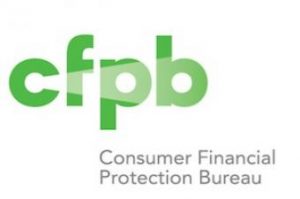 On Monday the Consumer Financial Protection Bureau (CFPB) released its “Annual Report of the CFPB Student Loan Ombudsman.” The analysis examines complaints logged against over 250 student loan servicers, debt collectors, private student lenders, and companies marketing in “debt relief.” The CFPB Student Loan Ombudsman received approximately 22,900 complaints between September 1st, 2016 and August 31st, 2017 related to federal and private student loan servicing, as well as debt collection during that time.
On Monday the Consumer Financial Protection Bureau (CFPB) released its “Annual Report of the CFPB Student Loan Ombudsman.” The analysis examines complaints logged against over 250 student loan servicers, debt collectors, private student lenders, and companies marketing in “debt relief.” The CFPB Student Loan Ombudsman received approximately 22,900 complaints between September 1st, 2016 and August 31st, 2017 related to federal and private student loan servicing, as well as debt collection during that time.
Among the complaints, many borrowers mention the difficulties of accessing loan benefits and protections advertised by these companies, particularly interest-rate reductions for on-time payments and repayment incentives when their loans are automatically deferred due to their enrollment status.
In addition, loan co-signers complained that being party to the debt “negatively affects their ability to access other credit, like mortgage and home equity loans.” Borrowers and cosigners report that being approved for a co-signer release has not been adequately explained.
According to the National Association of Realtors, 71 percent of nonhomeowners polled believe their student debt is delaying them from becoming homeowners. 52 percent of buyers expect to be delayed five years or more from buying a home.
As reported by MReport, student loan debt has significantly increased in recent years. In Q1 2017, debt grew by $34 billion, totaling at $1.34 trillion, according to the New York Federal Reserve. Student loans have also remained high at 11.2 percent, the highest rate of delinquency among debt covered by the federal government.
These numbers become even more ominous in light of a recent report released by the New York Federal Reserve that shows household debt is on the rise, totaling $12.73 trillion in Q1 2017.
“While most delinquency flows have improved markedly since the Great Recession and remain low overall, there are divergent trends among debt types. Auto loan and credit card delinquency flows are now trending upwards, and those for student loans remain stubbornly high,” said Donghoon Lee, Research Officer at the New York Fed.

 theMReport.com Your trusted source for mortgage banking news
theMReport.com Your trusted source for mortgage banking news








